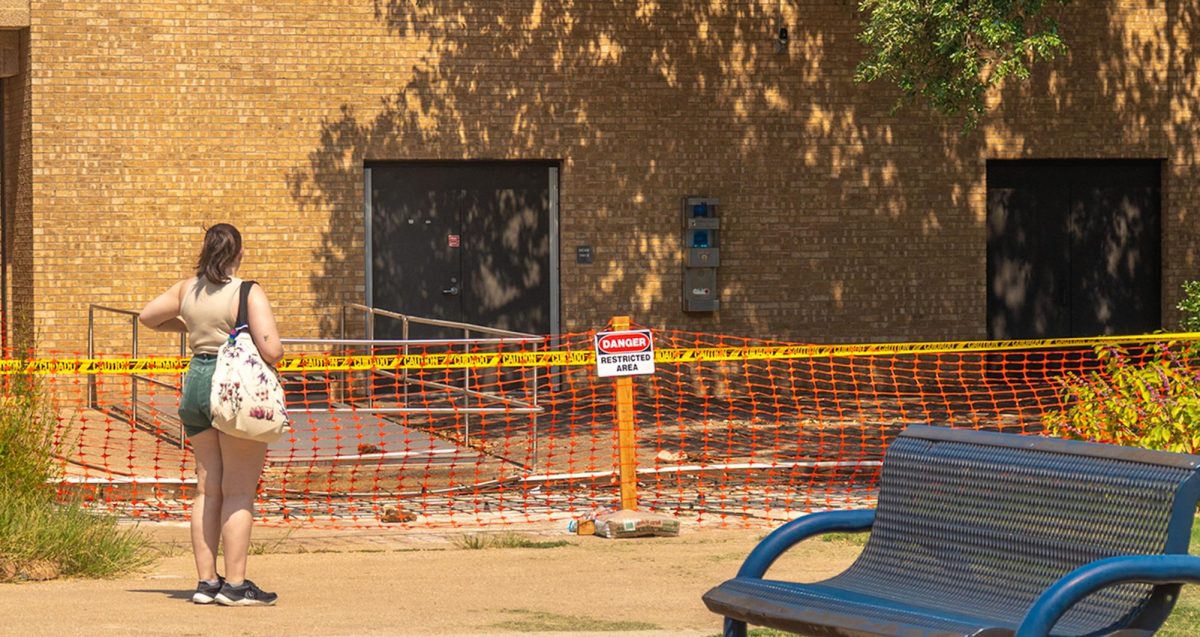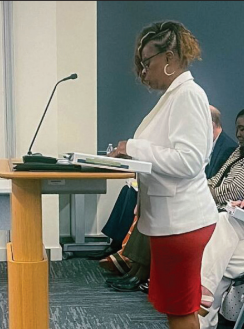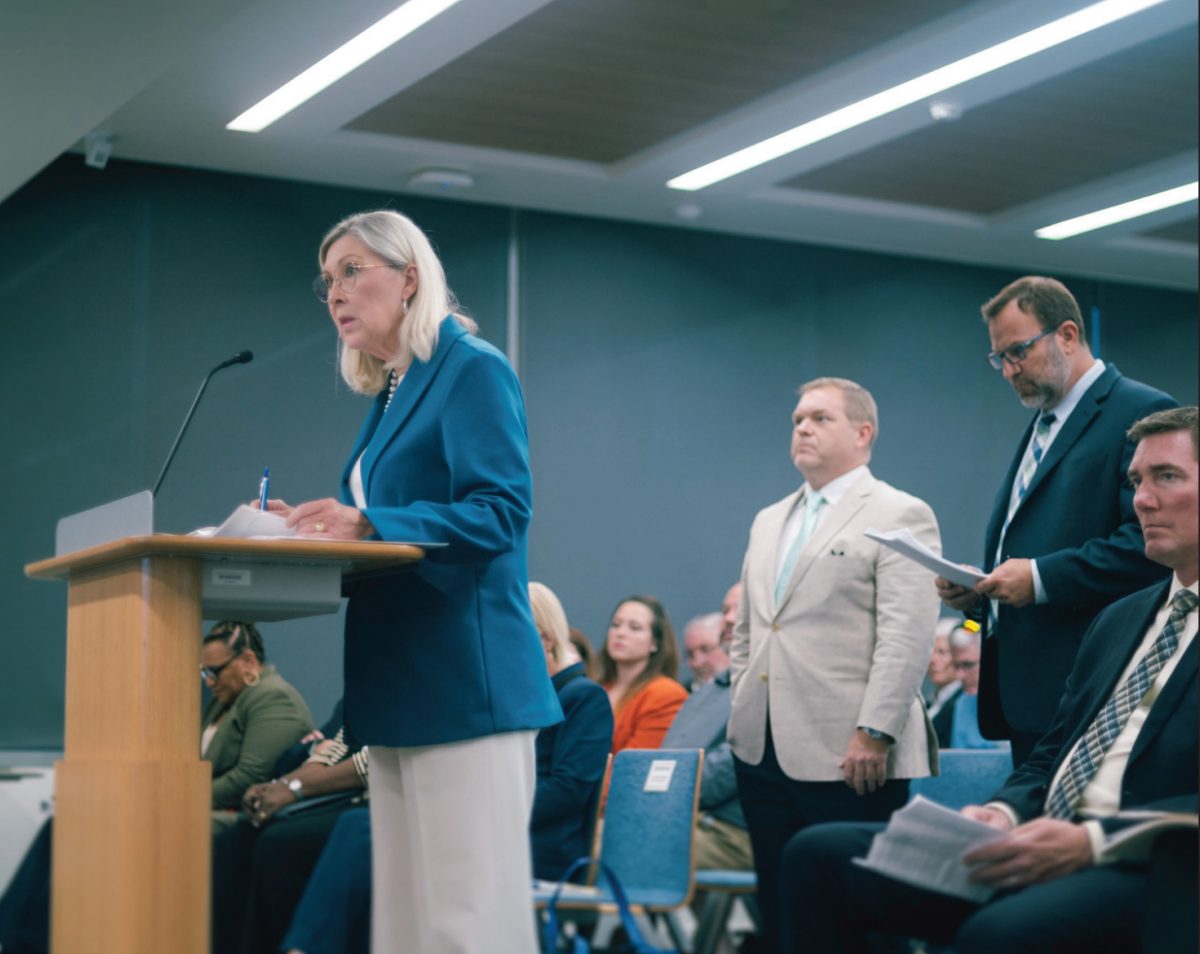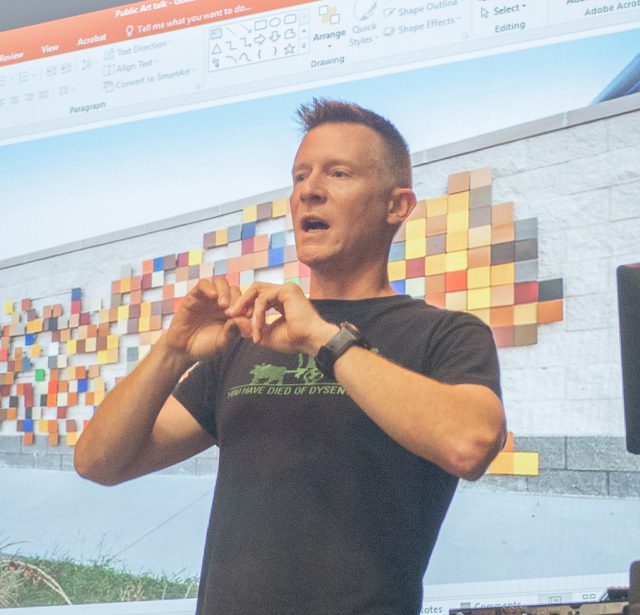| September, 18, 2019 | Elyssa Gideon | reporter |
|---|
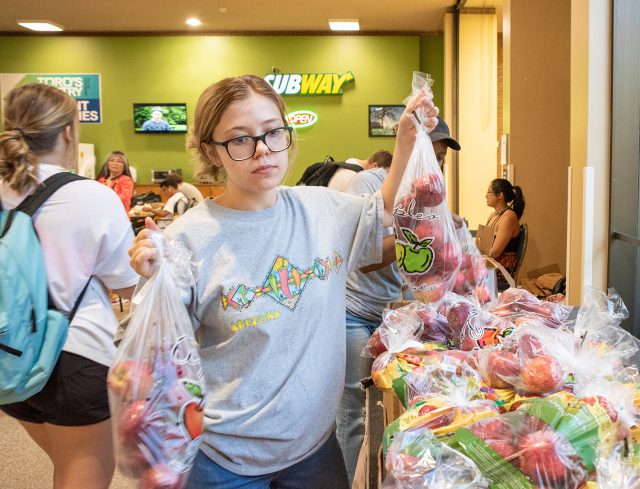
Photo by Joseph Serrata/The Collegian
Students who struggle with food insecurity may have a hard time focusing at school.
TCC currently has food pantries at NE Campus, SE Campus and South Campus. There is also a Community Food Market at NW Campus. These pantries have consistent hours to help accommodate students, with the Food Market at NW Campus being open only on the third Friday of every month.
Whether a student wants to use the food pantries or donate, they are available with a valid student ID.
“The only requirement is that you be a currently enrolled student,” NE food pantry coordinator Cheryl North said.
North started the first pantry at TCC on NE Campus in spring 2016, referred to now as “Toro’s Pantry,” to make sure all students were able to focus and be productive at school without needing to worry about their next meal.
“We want to give our students all they need in order to productively complete their education,” North said. “Food is a basic need that we can help with in order to ensure that students have proper nutritional needs met so that they can concentrate on their education.”
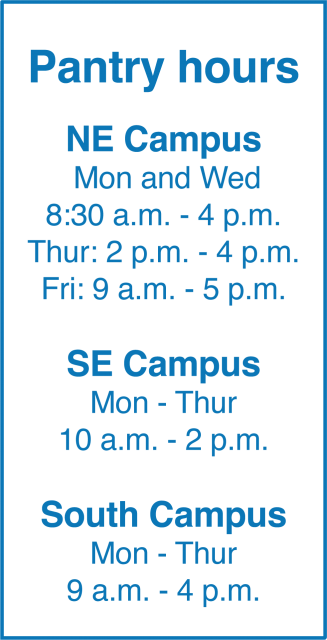
North also helped the South and SE campuses set up theirs. Sharon Wettengel, SE assistant professor of sociology who coordinates the food pantry, said they opened their pantry in 2017 after receiving reports that SE students were experiencing food shortages.
“We knew there was a problem with food insecurity when students would tell nurses and counselors they had not eaten for several days so they could have enough food for their children to eat,” Wettengel said.
The SE Campus pantry stays at least half full most of the time, Wettengal said. South Campus is also able to stay pretty full due to student and faculty donations.
“We do very well with donations,” said Amalia Guadalupe, South Campus Family Empowerment Center administrative assistant.
Each of the pantries have a cooler, so they can accept cold items to expand what they can offer students. The pantry coordinators strive to ensure each student has a full, complete meal.
“We have everything in sections of protein, veggies and such, so they [the students] can get one of each so they have a complete meal,” Guadalupe said.
The top items requested are non-perishables like ramen, canned tuna and chicken according to the pantry coordinators. Refrigerated items to stock the fridge have been popular now that they have cooler space, North said.
There are many students that depend on these pantries, and each coordinator touched on the importance of donating.
“We serve over 1,500 students a semester,” North said. “We always need donations and sincerely appreciate the generous donations from the NE Campus faculty, staff and students.”
Regardless of their financial ability or food insecurity, students can stop by their closest pantry whether it be to donate or to utilize.

